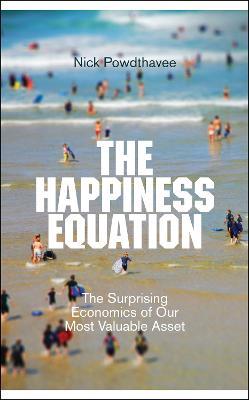
Happiness Equation
Author: Powdthavee, Nick
ISBN: 9781848311664
Checking local availability
Title
RM81.50
Publisher,Icon
Publication Date,
Format, Hardcover
Weight,
No. of Pages,
Why is marriage worth GBP200,000 a year?
Why will having children make you unhappy?
Why does happiness from winning the lottery take two years to arrive?
Why does time heal the pain of divorce or the death of a loved one - but not unemployment?
Everybody wants to be happy. But how much happiness - precisely - will each life choice bring? Should I get married? Am I really going to feel happy about the career that I picked? How can we decide not only which choice is better for us, but how much it's better for us?
The result of new, unique research, The Happiness Equation brings to a general readership for the first time the new science of happiness economics.
It describes how we can measure emotional reactions to different life experiences and present them in ways we can relate to. How, for instance, monetary values can be put on things that can't be bought or sold in the market - such as marriage, friendship, even death - so that we can objectively rank them in order of preference. It also explains why some things matter more to our happiness than others (like why seeing friends is worth more than a Ferrari) while others are worth almost nothing (like sunny weather).
Why will having children make you unhappy?
Why does happiness from winning the lottery take two years to arrive?
Why does time heal the pain of divorce or the death of a loved one - but not unemployment?
Everybody wants to be happy. But how much happiness - precisely - will each life choice bring? Should I get married? Am I really going to feel happy about the career that I picked? How can we decide not only which choice is better for us, but how much it's better for us?
The result of new, unique research, The Happiness Equation brings to a general readership for the first time the new science of happiness economics.
It describes how we can measure emotional reactions to different life experiences and present them in ways we can relate to. How, for instance, monetary values can be put on things that can't be bought or sold in the market - such as marriage, friendship, even death - so that we can objectively rank them in order of preference. It also explains why some things matter more to our happiness than others (like why seeing friends is worth more than a Ferrari) while others are worth almost nothing (like sunny weather).

